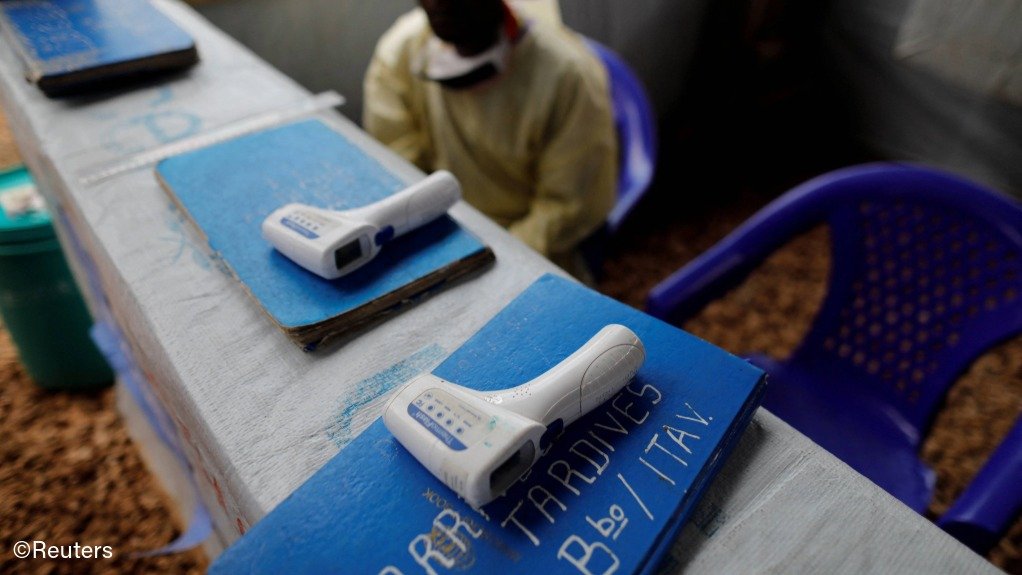Towns affected by Congo's latest Ebola outbreak have erected checkpoints to restrict population movements, officials said this week, as cases increased slightly and aid workers warned that the response was underfunded.
Democratic Republic of Congo's health ministry last week declared the country's first Ebola outbreak in three years, with 28 suspected cases and 15 deaths. It is the first outbreak in the country's Kasai province since 2008.
Kasai's Bulape zone, where the first case was reported, has been placed under confinement, the provincial governor said in a statement dated Monday, with multiple checkpoints put in place to prevent residents from moving in and out of the area.
"The problem is that we're afraid that the movement of people from Bulape could lead to contamination in other communities," Francois Mingambengele, administrator of the Mweka territory which includes Bulape, told Reuters on Tuesday.
"Some are going into the bush to hide. It's a crisis, and cases are multiplying."
Mingambengele said there had been 51 suspected cases and 18 deaths. The latest statement from the health ministry in Kinshasa said there were 32 suspected cases, 20 confirmed cases and 16 deaths.
The World Health Organization said last week that Congo had a stockpile of treatments as well as 2 000 doses of the Ervebo vaccine that would be transported to Kasai to vaccinate contacts and frontline health workers.
Several aid workers have voiced concern that Congo, which has experienced more than a dozen Ebola outbreaks, could struggle to mount an effective response this time given recent cuts to foreign assistance and the dismantling of the US Agency for International Development under President Donald Trump.
"Alongside other partners, USAID has established itself as a key pillar. This withdrawal will undoubtedly leave a void that will be difficult to fill," one Congo-based international aid worker said, speaking on condition of anonymity to avoid reprisals.
"The reduction in immediately available funds from key donors is already making it more challenging to respond quickly and reach the communities that need help," Save the Children country director Greg Ramm told Reuters.
EMAIL THIS ARTICLE SAVE THIS ARTICLE FEEDBACK
To subscribe email subscriptions@creamermedia.co.za or click here
To advertise email advertising@creamermedia.co.za or click here











